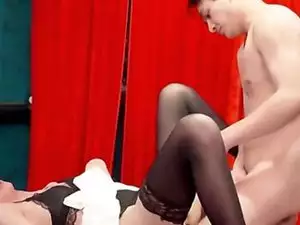Chloe
- 4 years ago
- 42
- 0

 2 years ago
2 years ago
The train journey took two hours, and I sat staring out of the carriage window, oblivious to the countryside flashing by, oblivious to other passengers, oblivious to everything except thoughts of my daughter Chloe.It had begun when my wife was killed in a car crash when Chloe was s*******n. I was devastated – it had been a terrific marriage, not least for the fantastic sex, where nothing had been taboo. Chloe seemed to grow up overnight, taking charge and looking after everything. She was...
 2 years ago
2 years ago
Chapter 1 I grew up in a town where you knew your neighbors and it was warm and friendly even though there were 75,000 people who lived there. My dad was a salesman and very much a disciplinarian. He had grown up on a farm and was a very hard worker. He was very traditional and really into sports. He had been pretty good when he was young but never did much past high school. He was 6' tall with brown hair and brown eyes. He was in decent shape but his shoulders were never very big or...
 4 years ago
4 years ago
My job allows me to work from the house from time to time. It was one of those days and it was almost over. I was getting pretty bored so I had opened my favorite tranny sex site and was watching a hot video and getting turned on. Just then there is a knock at the front door. I wasn't expecting anyone, so I was a little surprised. I hurriedly shut the web site and walked to the front door. I hope whoever was there wouldn’t notice my hard cock bulging in my pants.I looked thru the window...
 3 years ago
3 years ago
È praticamente notte fonda a New Orleans. Sono tutti impegnati per la strada a "giocare" venire equilibrista sui bordi del marciapiedi incurante che potrebbero passarti delle macchine vicino, non sei ancora tornato a casa perché non vuoi discutere nuovamente con i tuoi genitori. Stamattina avevi già discusso con loro per via del tuo insufficiente in matematica inoltre hai fatto tardi anche un lavoro ed hai litigato con il capo; il quale; non ha voluto pagarti questa settimana, ed ora sei qui,...
 2 years ago
2 years ago
Half an hour later and following two orgasms, she lay on her stomach supine and lacking enough energy to move after being well and truly fucked – doggie style. As she moved she felt the semen he had ejaculated along her spine move a little bit. She had grasped his penis, thinking she might make the running as she had the night before, she was sadly mistaken. He flipped her onto her front and knelt across her, quickly grabbing her by her hips and pulling her up to meet his hard prick that...
 4 years ago
4 years ago
Finally a break comes my way. The children are off to college, the wife has to go out of the country for two months on business. I can’t remember the last time we had sex. She used to dress in all types of lingerie for me. It helped me suppress some of my crossdressing desires. That stopped and my crossdressing started to grow again. What an opportunity for me, I can change up and dress the entire time except for when I have to go to the office. Lucky me, most times I work from home. Sunday, my...
Crossdressing 2 years ago
2 years ago
Monday, we were back walking east on Highway 20, and for now, Rachel was out front, and Cathleen was rear guard. Our doctrine of alternating the lead gave us all experience and some stress relief. It was early afternoon, and the temperature was dropping. The gloomy sky and the blustery wind meant more crappy weather was on the way again and made me wish we had remained holed up in our last refuge. It hadn't been wonderful, but it had a roof and walls. Too late now. "Looks like we had...
 3 years ago
3 years ago
“Let me fuck you before I leave,” Ethan says, his mouth at my ear. We fucked for the first time last night, and it’s apparent he hasn’t had enough. To be honest, I haven’t either. I hardly slept, my dreams were vivid pictures of the two of us. So when I feel my cheeks get hot and slightly nod my head, he wastes no time finding my mouth. His arms wrap around me, pulling me as close as possible, and my hands are around his neck. After a minute, he pulls my hands away from him and turns me...
 3 years ago
3 years ago
My name is Ray, and I've been married to my wife, Ann, for almost 25 years. Ann and I are in our upper 40's. We have two children, a son and daughter who are in college now. Ann is very sexy, 5' 8" tall, 130 lbs., great legs and ass, but she isn't very buxom. Ann and I have a good sex life, but there are a few things that Ann will not experiment with, one of them is anal sex. We've lived in our quiet urban home for 23 years now. Three years ago, we got new next door...
 3 years ago
3 years ago
ATTO DI RISPETTO Salve Mio Re- Mio Padrone Assoluto, maschile e virile, Siete pieno di forza e degno del massimo rispetto. Qui Vi rivolgo una preghiera, per rendere il pi? grande, incondizionato, eterno omaggio all'Uomo che abita il mio cuore e la mia mente tutto il tempo, che guida ogni mia azione, che ispira ogni mio pensiero, che mi segue in ogni passo. I miei occhi solo vedono Voi quando Voi mi concedete di ammirare la Vostra bellezza, le mie orecchie solo odono il...
 3 years ago
3 years ago
Greg thought the older you get the faster time goes by. It didn’t seem that four months had passed since his wife Jill had last made her trip to Dallas. He was now driving her to Tampa International Airport for her to go back to Dallas, Texas to spend four weeks with their daughter Beth, her husband and her three children. He was not a fan of her continuing to take these trips but after what had happened the last time she visited he had changed his opinion. If there could be a repeat of his...
 4 years ago
4 years ago
My brother Peter was a year older than me. He had taken a gap year before starting at university, and had been working on an urban support project in Chile. I intended to go straight to uni from school, so we would both start together. That summer I flew out to Santiago as we had made plans to tour Chile, Peru and Bolivia. We kept well off the tourist route, traveling by local trains and busses, staying at cheap hotels and hostels. After going north along the coast we crossed into Peru,...
Gay Male 2 years ago
2 years ago
Erik and Ingrid were very much enjoying their holiday.They had spent countless hours visiting old ruined Abbeys,Monasteries as well as all the other tourist sites they could find. They made sure to take many photographs. However at night in the privacy of their hotel room they used their camera to taken some very naughty photographs of themselves. The day before they were due to fly home they decided to take one last drive in the countryside. They came across an old Abbey with beautiful gardens...
 2 years ago
2 years ago
[MCMB I - JENNIFER] I was mildly self-conscious as I got into my custom built Aston Martin DB9. At nineteen years of age (two weeks short actually), even though I was on the campus where a large number of students were off springs of super rich and powerful and flashed their wealth as a sign of their self-perceived importance. Three years ago I was part of that pack. Self-realisation was quick and lasting. I smiled without being aware as my heart soared at the thought that I was going home...
 4 years ago
4 years ago
Alf [Alphonius]I met Alf accidentally one day. I had often waved to him and greeted him as I past the cab of the steam train he drove. His body looked great muscly from shoveling the coal into the fire box. His handsomely rugged looks had the girls swooning him and the older woman cugarizing him. Even I got a hard on thinking about the young & older women fantasizing about him. Quite often when you saw him in the engine he had one of his bib overall straps off his shoulder, he was covered...
 2 years ago
2 years ago
I was laying on my bed listening to music when I looked out the window. Darkness had fallen over the ranch and I looked at the note Sybil had given me earlier. On it was an address she had written down for me. I remember her words: “Come to this address after dark.” I had been wondering what was waiting for me at this place. While I was examining the note I noticed a small marking on the bottom. It looked like a small scribble, it was a word: Ménage. I got out of bed and put my jacket on. I...
 3 years ago
3 years ago
Teenage LesbiansBy Doria LyonsChapter 1The bright sun beat down on this hot, stifling August afternoon as the crew began setting up for the next take. Jo could definitely think of better places to be than Santa Fe in the middle of August. It had to be at least 100 degrees if not more and there was absolutely no shade from the burning sun.As Pete Henry placed the megaphone to his lips, everyone tried desperately to make a move from their sitting positions. It was just too damn hot to be...
 1 year ago
1 year ago
N1 Bet! Are you looking to get your fucking bet on? Ready to partake and win big when it comes to your favorite sport? Then I want you to know that you need to fucking check out N1Bet and find your preferred sport! No matter what you are in the mood to bet on – and no matter what sports are in-play at the moment – N1Bet has what you need.Visit today and find the sport that you want to bet on right here and right the fuck now. Your fortune may await you. Take a look today, and make a play that...
Betting Sites 3 years ago
3 years ago
“No, I’ll be there,” Meribal said into the phone. “ I just can’t stay very long today, that’s all. I know, I have too. I’ll be there. Give me twenty minutes.” She gently put the office phone down and walked quickly into the toilet, where she spat as much as she could onto some folded tissue paper and wiped herself around the back. The front she had already done and anyway, it wasn’t so important. “Back in an hour,” she said breezily to her P.A. as the girl watched her leave. Meribal walked...
Lesbian 2 years ago
2 years ago
Me, Nicki and her boyfriend Jack, had just got back to Nicki’s after being a friends party. We sat in her room had a smoke and drunk some more. It was one of those really humid, sweaty nights and encouraged by the vast amounts of alcohol we had consumed, Jack took his top off. He was tall and toned with shaggy fair hair and dark eyes. He insisted we followed his lead, and so we did. We were all very horny and Jack suggested we play around, so we started to play our own version of Truth or...
 3 years ago
3 years ago
"Gee," Jeremiah gasped, half on account of his breathlessness and half as he tried to hold back his laughter, "that was fun! Wasn't it Holly? No? Well I certainly enjoyed it. That was quite a performance from you, all that screaming and wailing." Jeremiah looked down at the poor girl bound beneath him, his eyes drinking in the effects of his attentions. Holly's back was shimmering with sweat with the odd angry red marking indicating where he had brought the paddle crashing...
 2 years ago
2 years ago
Ben Tennyson leaned back and yawned irritably. It was a bright and sunny Sunday afternoon... and he was stuck in a girl's clothing store. He supposed it couldn't be helped; he and his family had been ambushed by Sixsix the bounty hunter that morning, and though a few blows from Fourarms sorted the bounty hunter out, the Rust Bucket was pretty beat up in the fight. They had no choice but to push the derelict vehicle to the nearest town. Grandpa Max had given the two of them some money to...
 2 years ago
2 years ago
Beep beep beep. Oh god, is it really 5:30 again? I'm not going today, I'm just going to get up, pee and then crawl back into bed. I slowly make my way to the bathroom in the dark. As I drain my bladder with my panties around my ankles I keep my eyes closed. As the stream fizzles I reach for the roll. "Shit, no toilet paper." I stand up and scuttle over to turn on the light so I can see, then scuttle back and finish up. As I stand up, my eyes are still fighting the light but I catch a glimpse...
Reluctance 1 year ago
1 year ago
After a long day at school, Polly White and her boyfriend go back to her flat since her parents won’t be home for a couple of hours. And as they’ve done many times before, they slowly undress each other before the young man starts sensually slurping Polly’s hairless pussy. After she returns the favor and he’s rock hard, that’s when the pussy pounding begins—and when they’ve had enough of that, the young stud starts slamming Polly in her ass but still sensually. Eventually, like the good...
xmoviesforyou 2 years ago
2 years ago
Part Two of my on going saga of becoming a Sex Slave...“All right, each day will consist of various lessons for you to experience. And then Sunday will be the culmination of all that you have learned”, Master said with an authoritative tone.“You will only do as I say. No more, no less. You will have no ability to think for yourself. In fact, if you even need to use the restroom, you must wait until I instruct you to do so. I get off on seeing my slut’s belly protrude so full of urine and...
 2 years ago
2 years ago
Wild slut Samantha Mack visits us despite her busy schedule. The tattooed lady with humongous tits is all giggly and active while sharing stories about the latest happenings in her life. Samantha takes off her bra to reveal the full splendor of her breasts before giving her man a blowjob and deepthroat. She puts the big dick between her tits and slides it up and down. The horny duo fuck each other in missionary, doggystyle, and cowgirl. Samantha’s big tits violently bounce with each...
xmoviesforyou 2 years ago
2 years ago
May, 1985, Chicago, Illinois After dinner and karate, Bethany and I went up to my room. We’d agreed to take everything slowly, and savor each step. I hadn’t seen Bethany so excited about sex since the very first time we’d been together in the apartment back in Milford. At each step, she was fighting her urges for us to simply fuck like crazed bunnies. I spent considerable time licking and sucking her nipples, and then traced my tongue down her chest to her stomach, and eventually to her...
 4 years ago
4 years ago
I awoke the next morning to the sounds of squawking, yapping and whining, instead of Malok's voice in my head. My lovely Lyna was in my arms. In the light of day, I could see her completely. Her face was definitely angelic in repose. Her body was not hairless, but it was not very noticeable in all the usual places. While she had arm pit hair, it was the same kind of sparse, light color as the hair on her legs. Her bush, while more plush, was certainly lighter than most women I would...
 3 years ago
3 years ago
Searching this place was like walking through someone else's house. Everything was in the same place someone left it years ago. I started in the front office. It looked like your basic reception area. The pictures on the receptionist's desk showed a pretty blonde dressed in 1960's style. Her date book sat open to September 13, 1968. I also checked out the other offices. They were small with the gray metal furniture. What I noticed was that, aside from a small number of reference texts,...
 4 years ago
4 years ago
She looked absolutely radiant today. It was as if she knew, she knew what I was going to say, and she wanted to me to know exactly what I would be missing. Not a month before she finally agreed to meet me, I had been approached by her sister, Ara. Ara dropped by our place nearly every day. She never wanted anything, and she never made any sexual suggestions towards me. But that day, something was odd. "Come on, I know what Tea's like. She's my sister for Christ's sake." Ara 'sympathized'....
Reluctance 2 years ago
2 years ago
I’m not a slut or whore, I’m the top student of my class, but I also have fantasies. My fantasy man was my thirty-seven year old physics teacher, Mr. Denning. He was tall, had short hair, most of the time dressed in white shirt and black pants with polished leather shoes. He was the hottest man in the world for me. I thought about getting fucked by him, but I never tried to seduce him, because I knew that not all the fantasies come true. But a day before my physics exams, I couldn’t...
 3 years ago
3 years ago
The ring By: Paradox Author's note: Just a little story I decided to write after reading a caption that had a similar premise. I don't know if it's any good, or if I'll ever do any more... But, hey, why not put this out there? "Come on, Nick. Let's check this place out," Chad called. I sighed as I followed him. He was always dragging me to these places that I had absolutely no interest in. "A magic shop?" I asked. "Why would we want to go in there?" "Could be something...
 4 years ago
4 years ago
Hello doston mera naam Ram he, me iss kaa resent reader huin. Mera emaiol id he Mein engineering kihe, magar mein koi software company me ya koi company me kaam nai kartahuin. Jitna ek software engineer companyme kamatahe usse zada mein ghar baite kamatahuin, mein Bangalore me rehta huin koi bhi degree holders ko kaam dilana with good salary aur kuch illegal activities like degree universities mein paasing karana Aur bina college gayehi degree dilana, property recovery, setlements, thoda crime...
 3 years ago
3 years ago
How could a woman dye her hair such a hideous color!?! Two women were sleeping in the room. There was a double bed and two naked women, one White and one Black were sleeping on it with their arms and legs interlocked. The White woman had died her hair a bright green and it actually seemed to glow in the dark! Here were two candidates to tell them where they could find Spoiler Banes, so Nemesis waved Nightmare to follow her and they entered the room. Both had their guns drawn, and, when the...
 4 years ago
4 years ago
SATURDAY MORNING, OCTOBER 26 As Jeff jogged down the driveway at 4:00 A.M., I miss Kayla already, but tonight, she'll be my wife. I'll bet Lieutenant Mayfield will miss her this morning, too; she's fun to run with. Hmmm. I know he's pushing the security team to train hard. I need to make sure they're getting enough R&R, though. Mayfield is young and obviously wants to impress, and that's fine, but pushing his people too much will cause problems, also. This should be a cushy...
 3 years ago
3 years ago
Hi, this is raaj, dis is my 1st story on dis site, hope you all will enjoy this. Ye story mere aur sonam aunty ki hai, i m raaj with a perfect bdy 5’8, 22yrs, mera rod 7″ h.Ye tb ki baat hai jb main 1st yr me tha, mera sex ka knwlg to tha lekn main 1 achha ladka tha, mere ghr k thk samne ek ghr jo k mere sonam anty ka ghr h, mere balcuny se unka bedrum dikhta h. Pehle to mere dil me unke liye koi galat soch nai tha, pr ek din sham me jb main apne balcony me gaya to dekha k wo apne hsbnd ko hug...
 3 years ago
3 years ago
We had just been married a few weeks and one night after somehot and heavy fucking we began to talk about what really turnedus on. I could not believe what my wife told me and I could instantlyfeel my cock rising with anticipation of what was to come. My wife Lisa is 25 years old, 5'8"" tall with wavy blonde hairfalling below her shoulders. She has a fantastic body. Her legs arelong and thin, her ass is firm and tight and a great set of tits. Sheturns heads at the mall. I enjoy...
 3 years ago
3 years ago
If an insecure young teen feels she has a weird nose it can very well land her a weird nose job. Strange string of observations: 1. A lot of young girls who enter amateur paid porn look like models, but their nose. 2. The first thing an insecure teen sees, since she started to look in the mirror at ten or eleven. Her nose!!!3. Soon she sees nothing but her nose, whenever she walks past a mirror.She almost goes crazy! Mirors are everywhere in crazy capitalism. Even in school. Mirrors become...
 4 years ago
4 years ago
It’s Saturday night and I’m getting ready for some fun. I just finished my bath, which included some nice scented oils and a shave making my body totally smooth. Well except a cute little landing strip. I step from the tub and towel off, as i let it drop to the floor i take in the sight from the mirror. There i stand smooth as can be, erect nipples sticking out with the rings running through them. A dangling belly ring hangs below. I am very excited and that is evident in my little girl cock...
Incest 4 years ago
4 years ago
After a late breakfast, we again spent the day taking the waters. Pat started off being a little self conscious but soon quite forgot she was nude in public and soon even joined Shinju for a nude stroll together in the temple gardens. The priests brought us a simple but tasty lunch but their sudden appearance caused Pat to squeal and cover herself up deep in the waters again. I laughed and greeted and thanked the priests who paid our nudity no heed whatsoever. Afterwards I reminded Rick and...
 2 years ago
2 years ago
When Vera Kings man tells her that his niece, Vina Sky, is coming to spend the summer because her parents caught her in her room with another girl, she is secretly intrigued. They want to keep the girl away from any lesbian shenanigans, but little did they know, Vera loves her some pussy too. She wants to encourage the cute little Asian girl to love whoever she wants, so in order to cement her support, she takes off her clothes and climbs into bed with the babe, licking her body sensually as...
xmoviesforyou 4 years ago
4 years ago
My name is Anita. I am a 23 year old es-panic female, 5 ft 5 inches tall, 115 pounds, 32 B breast, 22 inch waist, and 32 inch hips. This is my story of several first for me including bondage, pain, pleasure and anal. My live in boyfriend dumped me a few months back telling me that I was not open minded and adventurous enough sexually and he had found a woman that pleased him much more than I. I was left with the lease on our apartment and all the utilities which put me in a heavy...
 4 years ago
4 years ago
‘Now it’s your turn.’ The slow smile that overcame Jett’s face, still glistening with Katy’s juices, said everything she needed to know. She got on her knees and straddled his legs while he watched her with predatory eyes. ‘Why don’t you,’ she unclipped and took off her bra, to Jett’s obvious pleasure, ‘let me take care of you.’ He made a show of putting his hands behind his back and giving her a sexy smirk, daring her to make him cum. She bent down and licked the head of his cock in...
 4 years ago
4 years ago
Amy 20: Amy in "Shut Up and Eat!" Copyright 2013 by Amy Komori The original characters and plot of this story are the property of the author. No infringement of pre-existing copyright is intended. This story is copyright (c) 2013 Amy Komori. All rights reserved. Chapter One: Too Bad So the first fake date went okay. Better than okay, actually. Patrick wasn't an asshole or anything. The whole junior high thing between us seemed like ancient history and this was a fresh...
 2 years ago
2 years ago
Annie had thought about her actions for quite some time and it was with a little regret and a lot of anticipation that she took Dan up on his offer of showing her the ropes, as he put it. She knew that he didn’t actually mean ropes per se, but she hoped that he did.Annie was open to suggestions, as many suggestions as Dan could propose in the intervening seventy-two hours that she had available to her; the time between her husband going away on a business trip and coming home. He was going to...
Seduction 3 years ago
3 years ago
Greg was a work mate of mine and he and I often hung out together. Every now and then, we’d hit the strip clubs, but we’d have to do it on the low down, since Greg’s girlfriend, Nikki, was not fond of Greg hitting the strip clubs. She knew what went on the clubs and she didn’t want Greg having any part of what happens in the strip clubs.Nikki was a cute girl. She was about thirty-something but looked much younger. She had a cheerleader-like body, standing about five foot two and weighing a tad...
Interracial 4 years ago
4 years ago
“Well, good morning,” I said with a smile on my face as I closed the door behind me. I sat the tray on the ledge beside the sink and glanced over to the bubble-filled bathtub in our suite. There she was, just basking in the glow of our late night/early morning lovemaking. She looked so beautiful in the tub covered with bubbles in all the right places.I popped the cork and poured the champagne out and went to hand Sydnee a fluted glass. I did make her pay me with a kiss to get the flute...
Threesomes 3 years ago
3 years ago
It’s cold; my skin was wet and covered with specks of dirt. I was naked to the world, exposed and vulnerable. I wanted to go home but I didn’t know where to turn.The forest I was taken to was dense and had no visible trails, the sun was going down and the entwined branches blocked out what little light I had. Tears welled in my eyes but I fought them back refusing to show any form of weakness.I stood against a cave wall that was for now my only refuge, I had escaped my captors or maybe they let...
 3 years ago
3 years ago
Kota, Rajasthan. Most probably the biggest joint of students in all of Asia.But how wild and dangerous things can go in a student joint.. lets see.. Niti‘s parents waved her bye as they sat in the taxi and went away leaving her in “BVR“ her new hostel. Her days started just like any other student who had came here to be a doctor in future. Tight schedule, vigorous studies and an empty room with bulk of loneliness.. Niti was not unknown but yes was a beginner in the world of sex, she used to...
 2 years ago
2 years ago
Late at night I decided to go to the gym. It was a Monday, even though I had work tomorrow, I went to the gym at 1am. There was no one there except a girl and this other guy. The other guy left not long after I got there, but the chick stayed. She was looking over at me as I worked out. I had a tank top on, you could tell she was interested in me. She had one of those shirts on that you could see some of her stomach, it was pink, with tight yoga pants on. she was thin, she had blond in her...
 3 years ago
3 years ago
Fair Warning: This story is mostly a tease, but I hope it leaves you wanting the next chapter. Tom Clark slapped his belly as he looked at himself in the mirror. Rather than the flab he gotten used to over the years, his flat hand met real muscle, and like they said on those old cereal commercials, he no longer pinched more than inch on his waist. It was true that at the age of 47, Tom was in the best shape of his life, and it was all thanks to his daughter, Brin. After a scare with his heart -...
Incest 4 years ago
4 years ago
It was my first day at university and I was at a mixer for freshers in my halls when I found myself staring at a girl. She was worth a stare, straw blond hair neatly tied in a single plait, pale blue eyes set high in a slightly pudgy face above the cutest little nose, and lips parted in a wide smile revealing perfect teeth. However, it would take me a beat or two to notice her most attractive features. I must admit it wasn't her beauty that had me staring at her, it was that she had neither...
 3 years ago
3 years ago
Seated at her little dressing table, nineteen year old Kristen Taylor tried her best to ignore that jibe. With so much yet to do before she was ready to go, the last thing she wanted to do right now was take the bait her sister was offering. It was a wasted effort as the other girl always found a way to penetrate her defenses, yet she felt that it was important to at least try.Kristen focused her attention on combing out her long auburn hair, counting each and every smooth stroke from her very...
 2 years ago
2 years ago
Sara Vandella is at home and is working out in her gym. Her stepdaughter, Scarlett Sage sneaks up behind her making sure that Sara can’t see her. When she pulls of the pins out of her weight machine, Sara falls out of her chair wondering what the hell just happened. She has no idea that Scarlett was the one that pulled it out. When more unexplained things start happening around the house, Sara starts realizing that it’s her no good stepdaughter. When she confronts her husband about...
xmoviesforyou 4 years ago
4 years ago
Another workday traveling. Another boring anonymous hotel... though this one is a small improvement from the usual dumps where my company books me. It even has a bar! I figure I've earned a glass of wine and I head on down. I'm still wearing my work clothes - a blue dress, sensible heels, stockings. I sit down near the end of the bar, and there you are.You are decent looking in an early-40s, anonymous hotel sort of way. Clearly you're every bit as tired of business travel as I am. And unlike...
 4 years ago
4 years ago
By : Pooja123 Hi readers, I am Pooja from Kerala. I’m writing my first experience over here. Hope you guys will enjoy this. Remember this isn’t a story, it’s a true incident. I’m narrating what happened between me and my brother Praveen 2 years back. All these happened when I was pursuing my +2 (18 years) and he was then doing his 10th. We use to sleep together since childhood because ours is a two bedroom apartment. One was occupied by our parents. One night he went to bed early and I was...
Incest 3 years ago
3 years ago
I was out shopping on a beautiful summer day when I saw this man looking at me checking me out.I was dressed to be checked out.I was wearing a pair of tight shorts,a sleeveless top with a nice amount of cleavage showing and a pair of strap heels.I smiled at him and he came over to me and introduced himself.I'm guessing he was 30 something.He was very handsome and had a pretty good body.We talked for awhile and I was a bit nervous not only that someone may see us but how I was going to get him...
 2 years ago
2 years ago
I had just finished up my semester at college when I got the call. My student job, with PCorps, was moving. My job was going to Bosnia, of all places, and did I want to come? “Who else will be going?” I asked over the phone. “The whole office is pretty much being broken up and sent all over the place,” my staff sergeant answered. “You’ll be thrown in with new people, all of you new to each other. It will be frantic, no doubt about it, trying to do logistics for U.S. personnel in the...